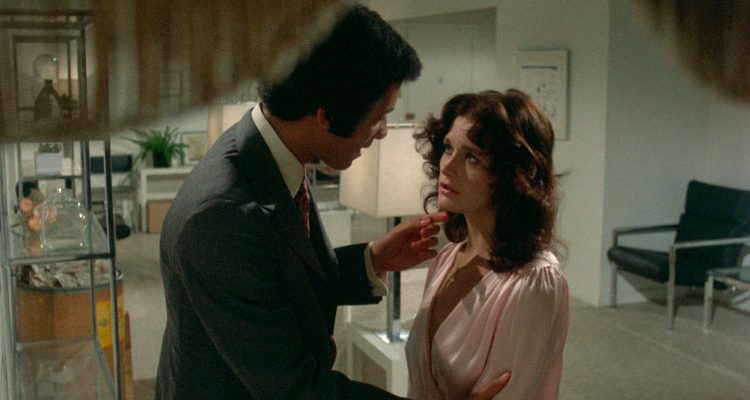Given his command of the craft and the trademark flourishes that define his oeuvre, including split-screen and split diopter shots, it’s easy to forget that Brian De Palma made a half-dozen pictures before “Sisters” would cement the style that would define his career. It’s unfathomable given the mechanics of today’s industry to imagine any filmmaker would be able to test out their talents on six features before finally scoring the hit that would propel them forward. However, the late ‘60s and ‘70s afforded filmmakers that luxury, and while all the aforementioned details are fascinating, the greatest pleasure in watching the new 4K restoration of “Sisters” is feeling like you’re in the hands of a master from the very first frame.
Borrowing liberally from the pages of Alfred Hitchcock — who was still very much alive at the time, with “Frenzy” and “Sisters” released the same year — you can already sense the torch being passed. Not only did De Palma manage to snare the scoring talents of frequent Hitchcock collaborator Bernard Hermann, but the film openly lifts from “Psycho,” “Rope,” and “Rear Window.” However, De Palma was no mere imitator. While you might see the faint fingerprints of Hitchcock on the scotch tape, De Palma’s approach moved beyond homage to transformation. Even more than 40 years after its release, “Sisters” feels thrillingly modern, and shaped with a sense of confidence that is simply awe-inspiring.
Sporting a ludicrous French accent that is nonetheless perfectly pitched for the film’s sensationalist storyline, Margot Kidder leads the picture as Danielle, a Quebecois model and aspiring actress trying to make it in the Big Apple. A chance meeting on a completely bonkers game show has her crossing paths with the handsome and kind Phillip (Lisle Wilson), and the pair goes out for dinner and winds up back at her place. However, the efficiently lean script by De Palma and Louisa Rose starts pulling the strings early. Danielle’s ex-husband Emil (William Finley) can’t stop hovering around the couple, and Danielle’s twin sister Dominique (also played by Kidder) arrives unexpectedly. Fast-forward a little bit and soon the cops and an investigative reporter, Grace (Jennifer Salt), are thrown into the mix and if you haven’t seen the picture, it’s best to experience the rest cold.
What’s most striking about De Palma’s film four decades later is its stunning composition. The director’s ability to frame and stage lengthy sequences — particularly when utilizing split-screen perspectives to ratchet up the tension — can still leave many contemporary filmmakers and audiences stunned. Of course, De Palma would employ this technique throughout his career with increasing complexity, and while on some later occasions the style tends to be a crutch for a screenplay that isn’t cutting it, with “Sisters” it’s all part of a seamless whole. The director clearly knows the material is tabloid level trash, but his audacity matches his accomplishment. “Sisters” never carries any feeling that De Palma is showing off or flexing his cinematic chops because he can, or is above the material. The film is utterly transfixing because it plays its schlock straight, and paired with Hermann’s hair-raising throwback score, the effect is giddy. The result is pure entertainment, and even though the film’s big twist can be seen coming with its first twenty minutes, you want to see how it gets there anyway. It’s worth the journey and it’s a helluva ride to take.
Particularly early on, De Palma’s films tended to orbit around freaks and outsiders — “Phantom Of The Paradise” and “Carrie” would be two of the next three pictures he would make following “Sisters” — but the sympathy he feels for these characters, even as they commit horrific acts, has always been notable. In “Sisters,” even as the blood starts to run, the filmmaker feels keenly for Danielle’s inability to cope with the rest of the world. With a background that forever marked her socially out of step, De Palma understands how that might motivate madness, but at the same time, refuses to allow that fact to forgive the choices Danielle makes.
It’s a surprising sensitivity to be found within the ingredients of a high-grade B-movie. However, De Palma has spent his lifetime pushing past and, at his best, transcending the limits of genre pictures. “Sisters” shows the director at a formative point in his career, taking the tools and experiments from his early work, and refining it into his first bonafide classic. However, you’ll probably be having too much fun to even think about that. [B+]
The newly restored “Sisters” opens at Quad Cinema in New York City on Friday, October 12th.

